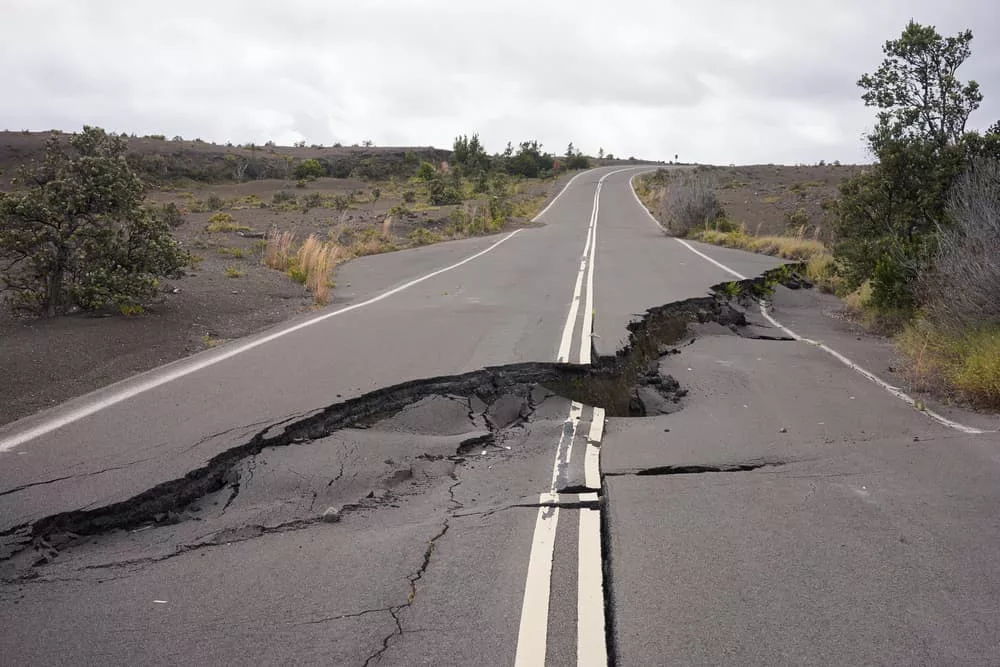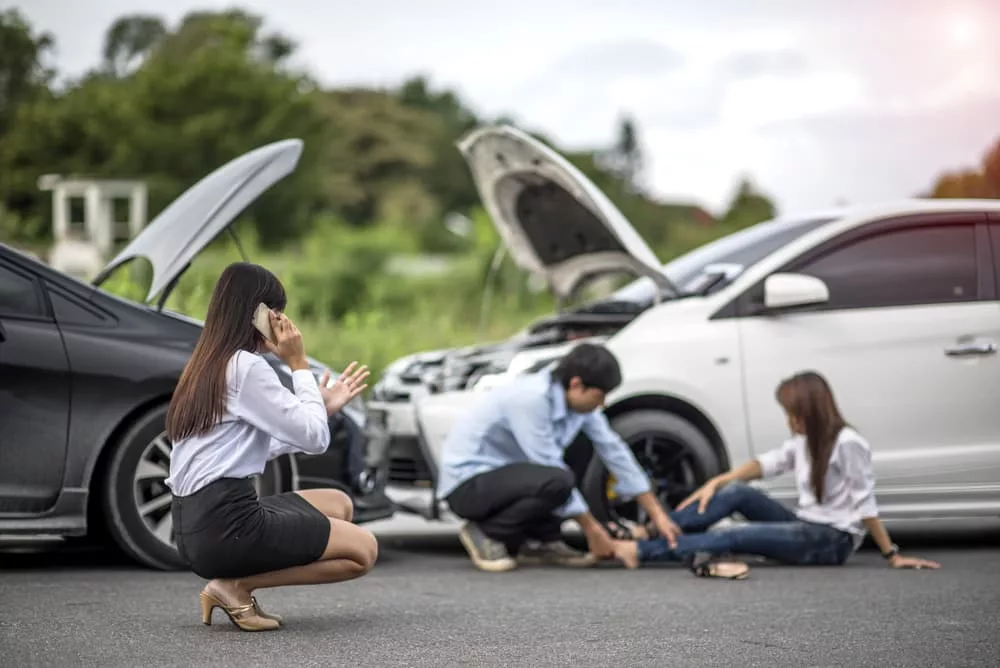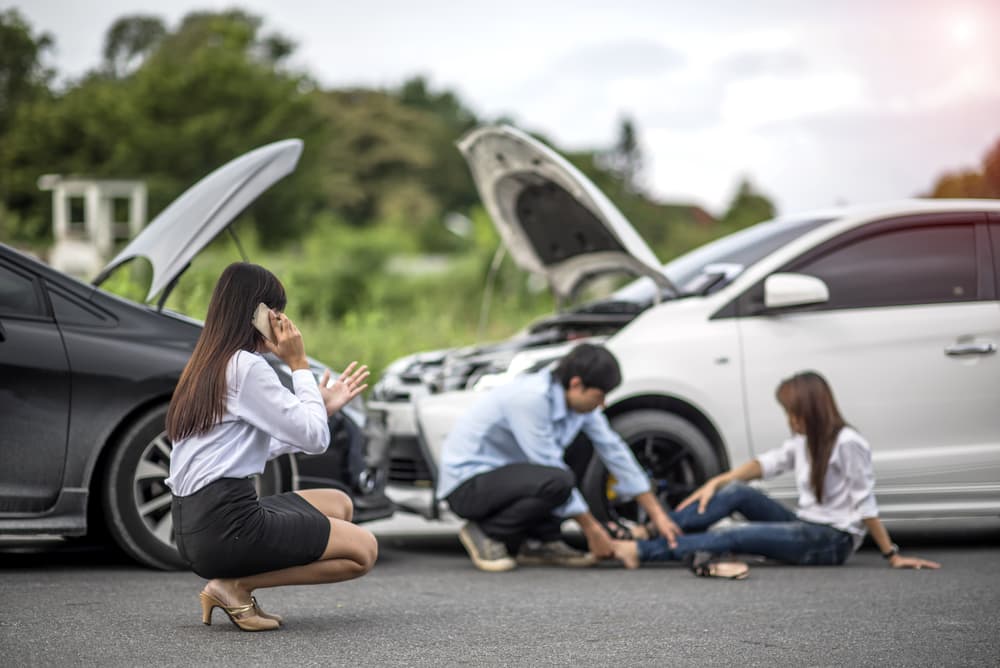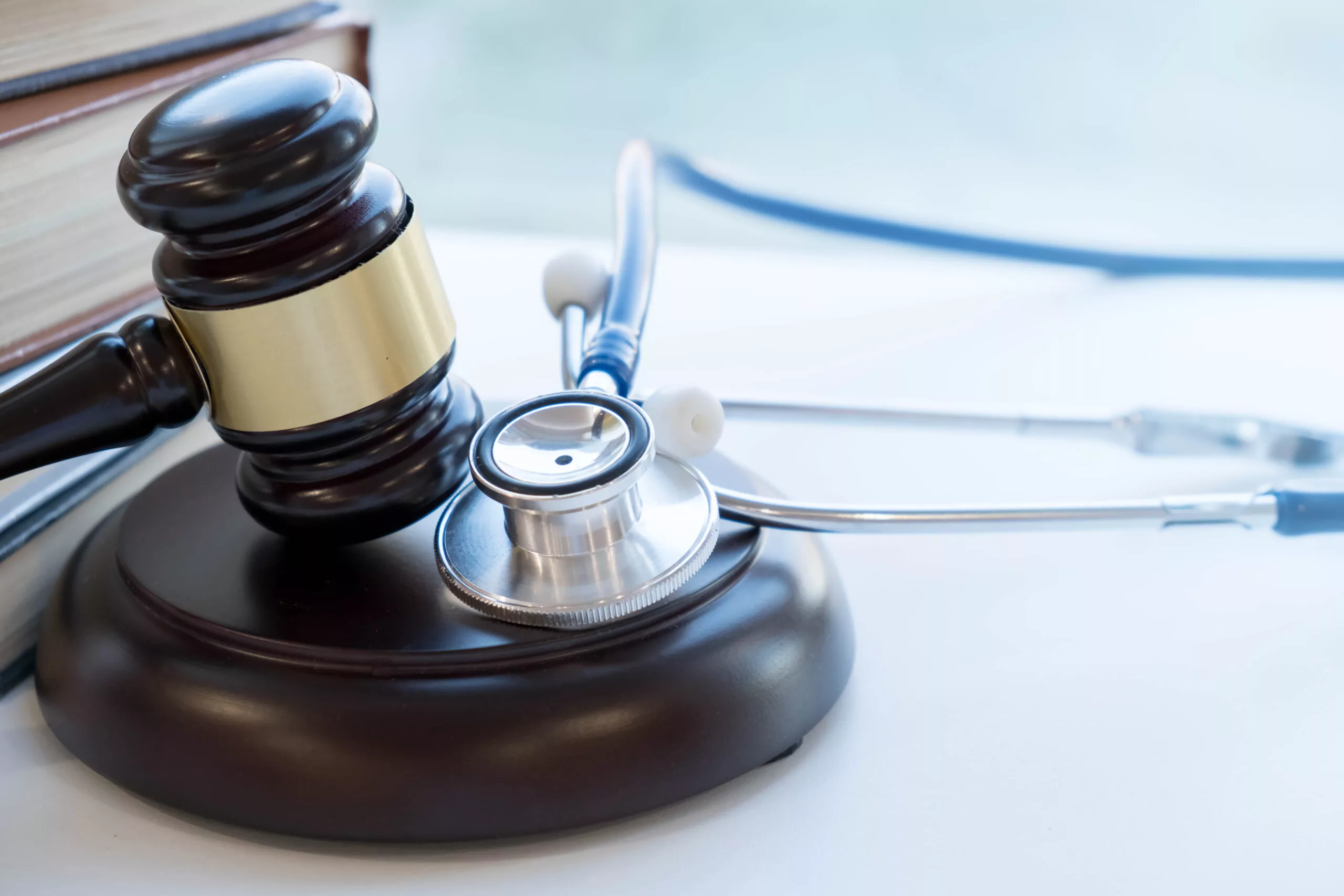Imagine you’re driving a friend’s car for a quick errand and you end up in a car accident. Nobody wants to be in this scenario, but it does happen. Who is liable in such a situation—you or your friend?
Understanding the implications of car accident liability, especially when you’re not in your vehicle, can influence car insurance claims, legal standpoints, and relationships. Whether you’re the car owner or the driver, knowing where you stand can help you navigate the complex and often stressful aftermath of a car accident and a skilled Miami car accident lawyer save you from potentially severe consequences.
Schedule a Free Initial Consultation Today!
Understanding Car Insurance and Liability
According to Driver Knowledge, around 6 million car accidents occur on U.S. roads each year, resulting in about 3 million injuries, two-thirds of which are permanent. Every day, 90 people die in car accidents. When there’s more than one vehicle involved in the accident or an injured pedestrian or bicyclist, fault and insurance may come up frequently during the legal post-accident claims process.
Car insurance is a contract between you and your insurance company in which you pay a premium and they pledge to cover financial losses in connection to your vehicle during the policy period. Coverage often includes property damage, bodily injury, and liability insurance—the latter playing a considerable role in an accident scenario.
In no-fault states, drivers must also obtain personal injury protection (PIP) coverage or no-fault coverage.
The Hartford explains that no-fault insurance helps pay for medical expenses and loss of earnings for the driver and their passengers if they suffer injuries in an accident, regardless of who is at fault. If the injuries are serious and someone else’s negligence caused the accident, liability coverage comes into play.
What Is Liability?
Liability in a car accident refers to one party’s legal responsibility to another. The person who caused the accident is typically liable.
These three elements determine liability:
- The at-fault driver had a duty to take reasonable actions to avoid causing harm to others while operating a vehicle on a public roadway.
- The driver breached their duty by taking careless, illegal, or unsafe actions.
- The breach of the driver’s duty directly caused an accident.
There are circumstances in which the vehicle’s driver is not on the insurance policy for the car. Allstate explains that car insurance typically follows the car, not the driver. If the car’s driver is not the insured person, the policy typically still covers the driver’s liability.
Factors That Influence Who Is Liable
When a driver operates a motor vehicle, they have a duty of care. This duty involves taking all reasonable actions to avoid causing harm to others while operating a vehicle.
Some examples of the factors that influence liability in a car accident include:
- Whether the driver adequately maintained and insured the vehicle.
- Whether the driver was obeying all state and local traffic laws.
- Whether the driver was taking precautions, such as slowing down in inclement weather or taking evasive actions in an attempt to avoid a collision.
- Whether the driver, if different than the owner, had the owner’s permission to use the car.
- Whether the driver, if different than the owner, had a license, and if the owner’s insurance coverage explicitly excluded them.
Allstate notes that for drivers who get into accidents in someone else’s vehicle, their auto liability insurance coverage may enter the equation if they’re responsible for the accident and the consequences of any resulting injuries exceed the limits of the car owner’s policy.
Scenario: Car Accident in a Friend’s Car
Suppose you’re driving your friend’s car and find yourself in a crash. Who is liable for the accident? The answer depends on several factors. Determining liability in such situations can become quite complicated. Factors such as the specific terms of the car owner’s insurance policy, the cause of the accident, the driver’s insurance situation, and local traffic laws come into play.
Car Owner Liability
The car owner might be liable if they gave explicit permission to the driver to use their car. Some state laws hold the car owner responsible, regardless of who was driving at the time of the accident. If the car owner knowingly allowed an impaired or unlicensed driver to use their vehicle, they could be liable for damages. This could mean higher insurance premiums or legal cases for damages that exceed the insurance coverage.
Driver Liability
The driver would be liable if they were at fault for the accident. The driver’s insurance policy may come into play if the owner’s insurance coverage is insufficient. Impaired driving, neglect of traffic laws, or an uninsured vehicle could make the driver liable. This might also lead to an increase in their insurance premiums.
The Role of Insurance Companies
Insurance companies determine fault by assessing the accident report, witness statements, and local traffic laws. The type of insurance policy and its specific terms significantly influence who is liable.
Some policies cover any driver of the vehicle, while others only cover specific drivers.
When an insurance company receives a personal injury or property damage claim against the liability coverage of a policy the insured person holds, they assign a claims adjuster to evaluate the claim. The adjuster determines if the policy in question has coverage available for the claim, whether the insured was at fault, and how much—if any—they legally must pay the claimant.
The claims adjuster can choose to:
- Accept the liability of the insured and process the claim for payment.
- Deny the claim and provide the claimant and their attorney with a written reason for the denial.
- Accept the insured’s liability but offer to settle the claim for less than its stated value.
Because insurance companies are in the business of making money, they try to keep the expenses of paying out on claims as low as possible. They usually offer a settlement rather than paying the full value of the claim, and they tend to prefer settlements over the more expensive option of litigation.
Legal Implications
Being in a car accident in a friend’s car could have profound legal implications for both parties, especially if someone suffers an injury. These implications can range from hefty fines and penalties to a potential lawsuit for damages. If the insurance company fails to pay the claim, the liable party is not off the hook.
Getting legal advice is crucial to navigating this complex terrain.
If you’re responsible for a car accident, the insurance policy for the car will face a claim. The insurance provider can dispute liability and the cost of the claim or deny it if the policy excludes the driver or any driver the policy does not name. If your friend did not maintain insurance on the vehicle, you or your insurance may face a claim.
Policygenius notes that in a survey, around 40 percent of insured drivers and more than half of drivers aged 18–34 admitted to feeling stressed about paying insurance. Forty-five percent of respondents said they have considered saving money by driving without insurance.
Around 17 percent have canceled their insurance policies. Driving an uninsured vehicle can open up a new arena of legal problems and penalties. It is essential to understand the level of insurance your friend carries on their car before taking such a legal risk.
Preventative Measures and Recommendations
Prevention is better than a cure. If you’re going to borrow a friend’s car, be sure that you have a clear understanding of your insurance coverage and the insurance policy of any car you drive. Maintain clear communication with the car owner about liability and insurance coverage before driving their car. Adequate insurance coverage can save you from potential financial and legal consequences.
All states have minimum auto insurance requirements, with wide variations in the type and amount of coverage. Drivers in no-fault states must have a minimum amount of PIP, bodily injury liability, and property damage liability.
The minimum required coverage for your state is often insufficient to cover your needs or the needs of those who suffer injury as a result of your negligence. If your state’s laws require you to maintain at least $10,000 in PIP coverage, you can seek repayment of lost income and coverage of medical expenses up to the limits of the policy in most cases, even if you were at fault and were not driving your own car.
America’s Debt Help Organization explains that an ambulance trip, diagnostic imaging scans, prescription medications, and physician services can cost thousands of dollars. Staying in the hospital overnight can cost nearly $3,000. Surgery can add tens of thousands of dollars to your medical bills. A PIP policy with a low limit will only scratch the surface of your medical expenses without even addressing your lost earnings while you recover from your injury.
A bodily injury liability policy at the minimum required coverage will generally be insufficient to cover the costs of treating someone else’s severe injury. Minimum property damage liability coverage often cannot cover the full cost of replacing a newer vehicle.
The injured party may seek compensation for medical expenses, lost income and earning capacity, property damage, and pain and suffering, but some options can provide the right coverage, including:
- Higher policy limits, which are available on any type of insurance coverage you have.
- Umbrella policies, which provide additional coverage if a claim exceeds your policy limits.
- Uninsured/underinsured coverage if the accident you were part of while driving your friend’s car is the fault of another driver who has no insurance or minimal coverage.
Talk to your insurance provider about the necessary coverage and be sure you understand your policy. Progressive explains that your insurance declarations page provides the details of your policy, including who the insurance covers, your details, the vehicles your policy insures, the types of coverage you have, and the coverage limit.
The Importance of Understanding Liability in Car Accidents
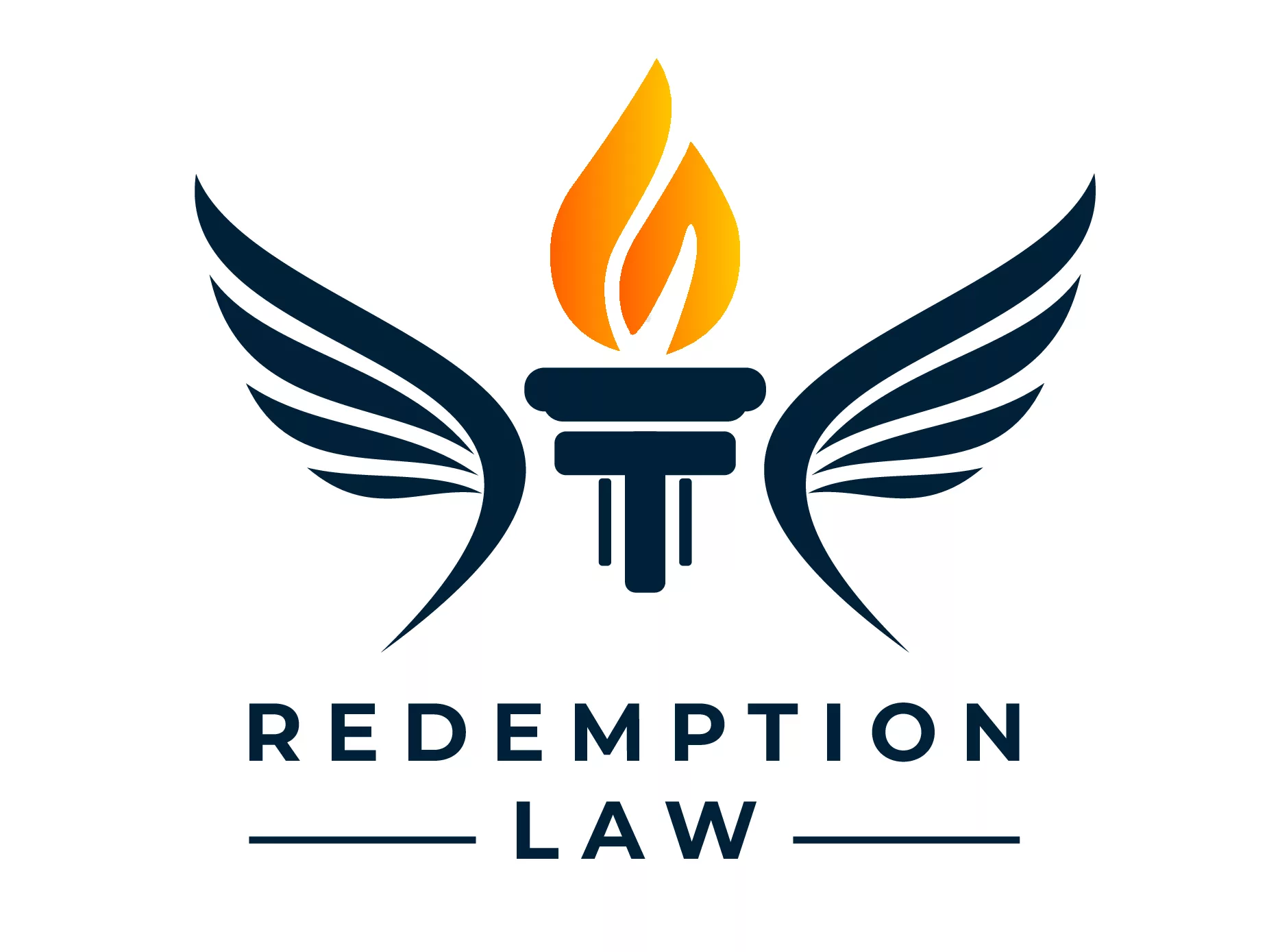
Understanding the complexities of car accident liability is crucial, especially when you’re not in your vehicle. Car owners and drivers need to know where they stand, and having the right insurance can go a long way in protecting them.
If you suffered injuries in a car accident while driving a friend’s car, an experienced personal injury lawyer can listen to the details of your case, answer your legal questions, and determine your options during a free case evaluation.
Related articles
Related articles Related articles Related articles Related articles Related articles Related articles Related articles Related articles Related articles Related articles
Personal Injury
02 Feb 2024
How Long After An Accident Can You Claim Injury?
